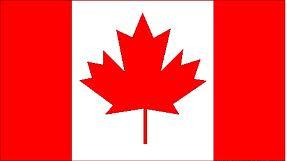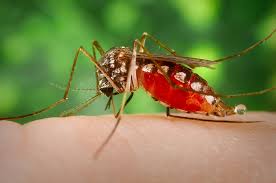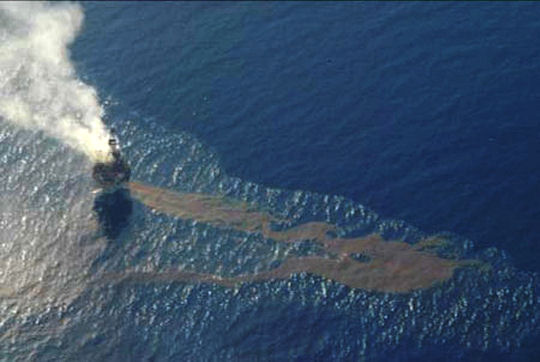|
|
|
|
|
|
|
|
No Arctic science events are planned for today.
|
Media
 Canada to Get its First University in the Arctic this Fall, With More Maybe to Follow. Canada to Get its First University in the Arctic this Fall, With More Maybe to Follow. The world's only northern country without some form of Arctic university may soon have three of them. There are plans in all three of Canada's territories to give their residents a better shot at higher education. Yukon, the Northwest Territories and Nunavut all have different approaches but similar goals. All want to give their youth a chance to learn without having to travel thousands of kilometers. All want to focus on the needs of their particular jurisdictions. The Globe and Mail
Young Sailors Find Perspective High in the Arctic. High above the Arctic Circle, waves crash aggressively onto Europe's largest three-masted wooden schooner. Wind howls violently against the ship as it crosses notoriously stormy waters -- tearing its sails in the process. But for the crew on board, as they cross the Barents Sea, this is the adventure of a lifetime. CNN
UMass Researchers to Look at Increased Rain in the Arctic. When we think about global warming, our main concerns are often higher temperatures and rising sea levels, researchers say. But there's another impending threat in the Arctic region: dangerously high amounts of rain replacing the snow. In a three-year project funded by the National Science Foundation and led by researchers at the University of Massachusetts Amherst and Bates College in Maine, scientists will investigate a new pattern that's unfolding in the Arctic. The Boston Globe
 Deadly Arctic Mosquitoes that 'Never Stop Attacking' Descend on World Cup Cities to Suck Football Fans' Blood. Deadly Arctic Mosquitoes that 'Never Stop Attacking' Descend on World Cup Cities to Suck Football Fans' Blood. Relentless blood-sucking mosquitoes have their sights set on World Cup fans - and the fearsome critters have been causing havoc outside the Three Lions' hotel. Authorities in Russia have been forced to go to drastic lengths to tackle the problem - with helicopters spraying insecticide over the stadium where England will play this week. The Arctic mosquitoes are a huge menace in Volgograd, which is a full 20C warmer than some parts of Russia. The Mirror
|
|
Future Events
** New this week** "Celebrate the Arctic!" Networking Event, June 18, 2018 (Davos, Switzerland). The Arctic Research Consortium of the United States (ARCUS) will host "Celebrate the Arctic!" This year, ARCUS invited partners at the International Arctic Science Committee (IASC), National Academy of Sciences' Polar Research Board (NAS PRB), Forum of Arctic Research Operators (FARO), European Polar Board (EPB), and Association of Polar Early Career Scientists (APECS) to co-host a casual evening of informal networking to highlight successes of the Arctic research community. There is no cost to attend this event.
From Entering the Field to Taking the Helm, Women's Perspectives on Polar Research, June 20, 2018 (Kongresszentrum Davos, Switzerland). This event is hosted by ARCUS and co-sponsored by USARC. Research findings are shaping our understanding of the issues that women face in technical fields, particularly those with strong connections to fieldwork. Concerns include a deficit of female leadership due to the so-called "leaky pipeline," a lack of safety and inclusivity at field locations, and explorations of ways in which research agendas have discounted contributions of women. Despite historical barriers to participation in polar field work, women have made outstanding contributions to polar physical, biological and social sciences, as well as to community-level efforts to coordinate and communicate science. In the past decade, women have stepped into leadership roles at polar institutions. Yet evidence of persistent challenges, reflected both in academic studies and media reports, compels us to examine the sources of those challenges and to explore solutions to ensure a bright future for all those who wish to engage in polar research.
5th European Conference on Permafrost, June 23-July 1, 2018 (Chamonix-Mont Blanc, France). In the continuation of the International and Regional conferences convened by the International Permafrost Association, the 5th European Conference on Permafrost (EUCOP 2018) will be held in Chamonix-Mont Blanc, France, 23rd June - 1st July 2018. The conference aims at covering all relevant aspects of permafrost research, engineering and outreach on a global and regional level. Conference website: here.
Arctic Observing Summit 2018, June 24-26, 2018 (Davos, Switzerland). The Arctic Observing Summit (AOS) is a high-level biennial summit that provides a platform to address urgent and broadly recognized needs of Arctic observing across all components of the Arctic system. AOS 2018 will be held in Davos, Switzerland ( June 24-26) and will focus on pressing issues in the implementation and support of sustained observations that can be addressed through a business-case lens. To that end, short submissions are requested that address any and all aspects of the overarching theme and sub-themes. Additional information can be found here.
 Coastal Response Research Center Requests Input on the State of Science on Dispersant Use in the Arctic. The Coastal Response Research Center (CRRC) recently collected statements and reports on five topic areas related to dispersant use in the Arctic: efficacy and effectiveness; physical transport and chemical behavior; degradation and fate; eco-toxicity and sublethal impacts; and, public health and food safety. CRRC request written input on the statements the scientists made on the state-of-the-science regarding dispersant use, particularly as it applies to Arctic waters. Written comments are requested by July 13th. More information on this initiative is available here. Coastal Response Research Center Requests Input on the State of Science on Dispersant Use in the Arctic. The Coastal Response Research Center (CRRC) recently collected statements and reports on five topic areas related to dispersant use in the Arctic: efficacy and effectiveness; physical transport and chemical behavior; degradation and fate; eco-toxicity and sublethal impacts; and, public health and food safety. CRRC request written input on the statements the scientists made on the state-of-the-science regarding dispersant use, particularly as it applies to Arctic waters. Written comments are requested by July 13th. More information on this initiative is available here.
17th International Congress of Circumpolar Health (ICCH17), August 12-15, 2018 (Copenhagen, Denmark). The ICCH congresses are held every third year in different locations in the circumpolar area and represent the largest scientific meetings worldwide on circumpolar health. The ICCH congresses serve as the primary source of information exchange and scholarly communication in issues relating to circumpolar health. More than 750 participants generally register and participate in each Congress, and more than 400 scientific papers or posters are usually presented.
UArctic Congress 2018, September 3-7, 2018 (Oulu and Helsinki, Finland). The UArctic Congress 2018 will bring together key UArctic meetings and a science conference into one single gathering, including business meetings of the Council of UArctic, Rectors' Forum, Student Forum, and Thematic Networks & UArctic Institutes Leadership Team. The Congress is an integral part of the Finland's Arctic Council chairmanship program, and open to the public. The event will highlight the themes and priorities of the Finnish chairmanship, including the goals of the United Nations' 2030 Agenda for Sustainable Development, and the Paris Agreement under the UN Framework Convention on Climate Change.
Scientific Exploration of the Arctic and North Pacific (SEA-NorP), September 25-27, 2018 (Mt. Hood, Oregon USA). This workshop will include discussion of hypotheses that can be tested by scientific drilling in the region, the technology necessary to achieve those goals, ideal sites for drilling based on existing data, and where additional site survey data is needed. The goal of the workshop organizers is that multiple proposals will be initiated at the workshop, both for full cruise legs and for shorter, targeted expeditions around the following themes: ocean gateways, geohazards, volatile cycling, ice histories at transition zones, biosphere and climate.
The second Arctic Biodiversity Congress is hosted by the Conservation of Arctic Flora and Fauna (CAFF), the biodiversity working group of the Arctic Council, and the Ministry of the Environment, Finland. The second Arctic Biodiversity Congress will build on the success of the first Congress, held in 2014 in Trondheim, Norway, and will bring together scientists, policymakers government officials, Indigenous representatives, Traditional Knowledge holders, industry, non-governmental organizations, and others to promote the conservation and sustainable use of Arctic biodiversity.
|
|

  
4350 N. Fairfax Drive, Suite 510
Arlington, VA 22203, USA
External links in this publication, and on the USARC's World Wide Web site ( www.arctic.gov) do not constitute endorsement by the US Arctic Research Commission of external Web sites or the information, products or services contained therein. For other than authorized activities, the USARC does not exercise any editorial control over the information you may find at these locations. These links are provided consistent with the stated purpose of this newsletter and the USARC Web site.
|
|
|
|
|
|
|
|
|
 Canada to Get its First University in the Arctic this Fall, With More Maybe to Follow. The world's only northern country without some form of Arctic university may soon have three of them. There are plans in all three of Canada's territories to give their residents a better shot at higher education. Yukon, the Northwest Territories and Nunavut all have different approaches but similar goals. All want to give their youth a chance to learn without having to travel thousands of kilometers. All want to focus on the needs of their particular jurisdictions. The Globe and Mail
Canada to Get its First University in the Arctic this Fall, With More Maybe to Follow. The world's only northern country without some form of Arctic university may soon have three of them. There are plans in all three of Canada's territories to give their residents a better shot at higher education. Yukon, the Northwest Territories and Nunavut all have different approaches but similar goals. All want to give their youth a chance to learn without having to travel thousands of kilometers. All want to focus on the needs of their particular jurisdictions. The Globe and Mail Deadly Arctic Mosquitoes that 'Never Stop Attacking' Descend on World Cup Cities to Suck Football Fans' Blood. Relentless blood-sucking mosquitoes have their sights set on World Cup fans - and the fearsome critters have been causing havoc outside the Three Lions' hotel. Authorities in Russia have been forced to go to drastic lengths to tackle the problem - with helicopters spraying insecticide over the stadium where England will play this week. The Arctic mosquitoes are a huge menace in Volgograd, which is a full 20C warmer than some parts of Russia. The Mirror
Deadly Arctic Mosquitoes that 'Never Stop Attacking' Descend on World Cup Cities to Suck Football Fans' Blood. Relentless blood-sucking mosquitoes have their sights set on World Cup fans - and the fearsome critters have been causing havoc outside the Three Lions' hotel. Authorities in Russia have been forced to go to drastic lengths to tackle the problem - with helicopters spraying insecticide over the stadium where England will play this week. The Arctic mosquitoes are a huge menace in Volgograd, which is a full 20C warmer than some parts of Russia. The Mirror

